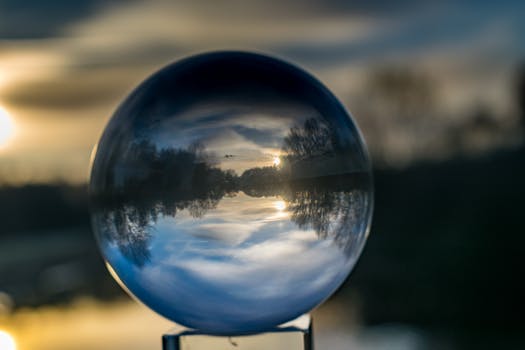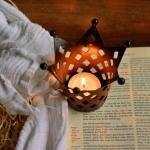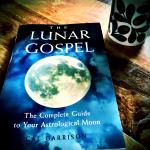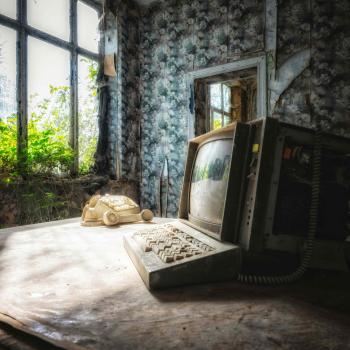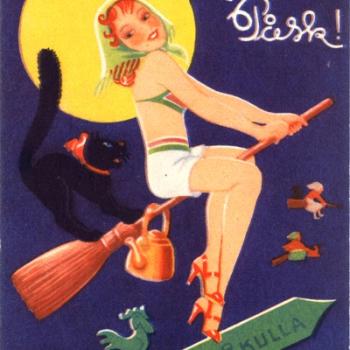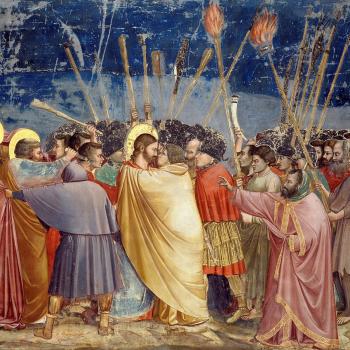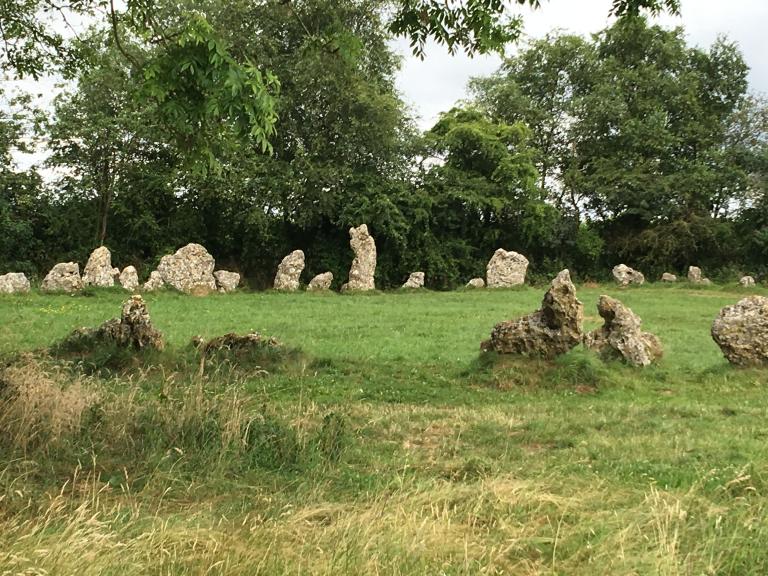
In working with witchcraft, paganism and the occult there is a spectrum of views regarding whether working should be performed inside the temple, or outdoors. The thinking in this area ranges from the polarising extremes, from those who insist that all work should be carried out inside, to those who counsel us to work solely out of doors. However, the factors of modern living must be taken into account in every instance, the demands on our lives and the immediacy technology has wrought wreak havoc in all quarters. Unless we are fortunate enough to afford an existence detached from these influences, independent means sufficient to allow a disconnect from the heavy pressure of modern life, our choices may be realistically confined to the time and space allotted. Furthermore, our ideal may not be immediately available to us and the challenges our lives present may, indeed, be the testing ground of our mettle. After all, necessity is the mother of invention.
To demonstrate how this last is pertinent to our path, I share the wise words a meditation teacher once shared with me. In talking of the practice of meditation, this person pointed out that the ability to maintain a steadfast and unerring mental clarity whilst secluded in a mountain hermitage does not transfer to a crowded commuter train in rush hour. Indeed, the latter is more appropriate in exercising the mental muscle as, if clarity can be sustained here, one may meditate successfully and attain mindful peace anywhere. The fast-paced, ever present modern life, with its sprawling urban immediacy and constant chatter is, for most of us, the training ground. That being said, it is certainly not the ideal for both mental and spiritual health, coupled as it is with the unavoidable sense of lack, that feeling that there is something intrinsic missing. This self same urge may account, to some degree, to the move from the church, so interconnected today with some of the forces which confine, and outside toward the spiritual traditions which work in harmony with nature.

In his seminal book, Lost Connections, Johann Hari lays bare the key areas in which our modern lives are disconnected in fundamentally necessary areas, leading to the huge rise in depression and anxiety in the population. In identifying that, to some degree, all of us are affected in one way or another, Hari cites the numerous scientists and works that are revealing how our modern lives are toxic and unnatural, being often the direct cause of our feelings of general malaise to full blown mental illness. One of the interesting scientific developments he discusses is in the work of Isabel Behncke, Chilian Primatologist who has dedicated her life to researching, studying and spending time with primates, especially the Bonobo and Chimpanzee, to study behaviour. In her research, and as expressed to Hari in researching his book, Isabel explains that the natural environment of primates does not allow for behaviours of exaggerated depression or anxiety (Hari, 2018, pp. 116-131). Where animals in captivity develop ticks, scratching and other signs of depression and anxiety, those in the wild who might develop to the same degree find the symptoms halted when in their natural environment. When writing up her findings, confined to hours within an academic office, Isabel discovered that she experienced the sensations commonly associated with depression. This led her to conclude that the natural habitat of primates, and other animals, is where these symptoms are at there least evident. In communicating this to Hari, upon a mountain hike as if to emphasise her point, Isabel Behncke demonstrates that, in the wild and natural environment, we are naturally most at ease. Summarising, Hari makes the wonderful statement that depression and anxiety makes of the sufferer a prisoner of ego, locked in perpetual thoughts centred around the Self. In stark contrast, being in the natural environment produces the direct opposite, instilling a sense of awe which brings the individual to an awareness of ‘other’ outside of ‘self’, and giving our ego room to breathe.
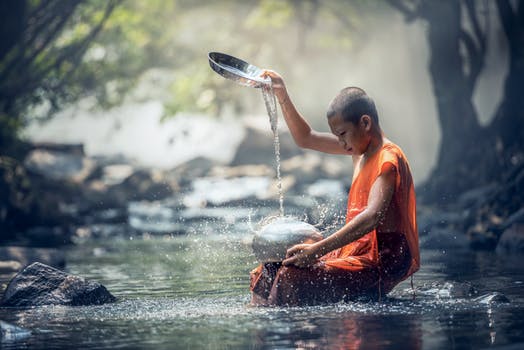
Bringing this back to the conflict between working indoors and outdoors, we can see how there is evidence to support the idea that working out of doors brings us closer to ‘other’, and thereby the spirits themselves as identities separate to our own self-identity or spirit. That being said, we must be sympathetic to the details of our circumstances which may or may not permit this with any ease. Somebody with a busy work life, being a single parent living in the city could find it extremely difficult to find a suitable location in the wilds of nature in which to perform a lengthy ritual. So be it, and under such circumstances, an indoor ritual might be arguably just what that person needs for a few minutes of connectedness.
In concluding, I believe that it is imperative that we each find some respite in nature as and when we may, making an effort in our spare time to get outside and breathe the wonderful air and feel the awe of the larger exterior world, allowing our ego to relax itself and relinquish some of its grip of the Self. These moments of connectedness with nature, whether small and brief, are a soul tonic and can be safely committed to memory to drawn upon as and when necessary to refer ourselves back to that sensation that our natural environment and habitat confers.
Often, paganism and witchcraft are referred to as nature religions. Whilst I would argue against this when it is meant to imply that worshipping nature is the object of witchcraft, nevertheless a connectedness with the natural environment, as opposed to the restrictive manmade, is of such fundamental importance that it can only be ignored at our peril. For our spiritual and mental health, we are strongly urged to get outside, clear the mind and simply ‘be’, experience the ‘otherness’ of nature and be at ease in our place.
Hari, J. (2018) Lost Connections. Bloomsbury Circus.
